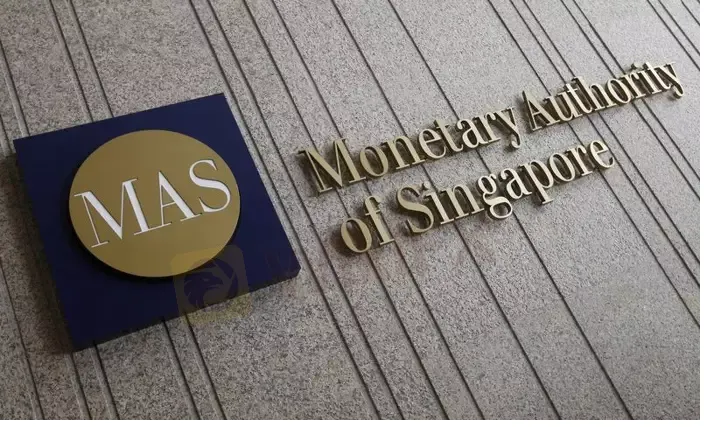简体中文
繁體中文
English
Pусский
日本語
ภาษาไทย
Tiếng Việt
Bahasa Indonesia
Español
हिन्दी
Filippiiniläinen
Français
Deutsch
Português
Türkçe
한국어
العربية
Singapore steps up inflation fight with surprise central bank tightening
Abstract:Singapore’s central bank tightened its monetary policy on Thursday, in an off cycle move, saying the action will slow the inflation momentum as the city state ramps up its battle against soaring consumer prices.

The Singapore currency jumped broadly after the news and was last up almost 0.7% to S$1.3963 per dollar, with economists expecting further tightening in October.
The tightening was the Monetary Authority of Singapore‘s fourth in the past nine months and comes hot on the heels of Canada’s surprise 100 basis point interest rate hike on Wednesday and just before an out-of-cycle 75 basis point hike in the Philippines on Thursday.
“Clearly, MAS is very concerned about inflation. It is just going to try to do all they can to put the brakes on inflation,” said Chua Hak Bin, an economist at Maybank.
The U.S. Federal Reserve is also seen stepping up its monetary tightening campaign with a supersized 100 basis point rate hike this month after a grim inflation report showed inflation racing at four-decade highs.
New Zealand and South Korea both delivered half percentage point rate hikes on Wednesday.
The MAS said it would re-centre the mid-point of the exchange rate policy band known as the Nominal Effective Exchange Rate. There will be no change to the slope and width of the band, it said.
“This policy move, building on previous tightening moves, should help slow the momentum of inflation and ensure medium-term price stability,” the MAS said in a statement.
The central bank also said Singapores gross domestic product growth is expected to come in at the lower half of the 3-5% forecast range for 2022, while core inflation is now projected between 3.0–4.0% for the year, up from an earlier forecast of 2.5–3.5%.
Preliminary data on Thursday showed Singapores GDP grew 4.8% in the second quarter, missing forecasts.
Singapore‘s core inflation rate — the central bank’s favoured price measure – rose in May at its fastest pace in more than a decade, to 3.6%, just above forecasts, driven by higher inflation for food and utilities.
The city-state has eased most of its COVID-19 local and travel restrictions since early April this year, supporting the economic recovery of the Asian financial and business hub.
More tightening ahead?
In April, Singapores central bank tightened its monetary policy to slow inflation momentum against soaring prices made worse by the Ukraine war and global supply snags.
The central bank holds two scheduled monetary policy meetings a year, in April and October.
The latest move is the second out-of-cycle change this year, after an unscheduled tightening in January and leaves the door open to further rate increases, economists say.
“Its telling you that we are worried about inflation and therefore we welcome a strong currency,” said Moh Siong Sim, a strategist at Bank of Singapore.
“It probably wasnt fully expected in terms of the timing and extent of the move. It leaves open the question of how much tightening is left to come?”
The MAS manages monetary policy through exchange rate settings, rather than interest rates, as trade flows dwarf its economy.
It adjusts its policy via three levers: the slope, mid-point and width of the policy band, which let the Singapore dollar rise or fall against the currencies of its main trading partners within an undisclosed band.
“With forecasts pointing to even higher inflation prints down the road, we consider it likely that we will see further action by the MAS at the October meeting,” ING economists said in a report.

Disclaimer:
The views in this article only represent the author's personal views, and do not constitute investment advice on this platform. This platform does not guarantee the accuracy, completeness and timeliness of the information in the article, and will not be liable for any loss caused by the use of or reliance on the information in the article.
Read more

Good News Malaysia: Ready for 5% GDP Growth in 2025!
Malaysia's economy is on track to sustain its robust growth, with GDP expected to exceed 5% in 2025, according to key government officials. The nation's economic resilience is being driven by strong foreign investments and targeted government initiatives designed to mitigate global economic risks.

Tradu Introduces Tax-Efficient Spread Betting for UK Traders
Tradu’s introduction of tax-efficient spread betting and groundbreaking tools like the Spread Tracker signals a new era of accessible, competitive, and innovative trading solutions for UK investors.

Trading Lessons Inspired by Squid Game
The popular series Squid Game captivated audiences worldwide with its gripping narrative of survival, desperation, and human nature. Beneath the drama lies a wealth of lessons that traders can apply to financial markets. By examining the motivations, behaviours, and strategies displayed in the series, traders can uncover valuable insights to enhance their own approach.

How Far Will the Bond Market Decline?
Recently, the yield on the U.S. 10-year Treasury bond reached a new high since April 2023, soaring to 4.7%.
WikiFX Broker
Latest News
High-Potential Investments: Top 10 Stocks to Watch in 2025
US Dollar Insights: Key FX Trends You Need to Know
Why Is Nvidia Making Headlines Everywhere Today?
Discover How Your Trading Personality Shapes Success
FINRA Charges UBS $1.1 Million for a Decade of False Trade Confirmations
Bitcoin in 2025: The Opportunities and Challenges Ahead
BI Apprehends Japanese Scam Leader in Manila
Big News! UK 30-Year Bond Yields Soar to 25-Year High!
SQUARED FINANCIAL: Your Friend or Foe?
Join the Event & Level Up Your Forex Journey
Currency Calculator






